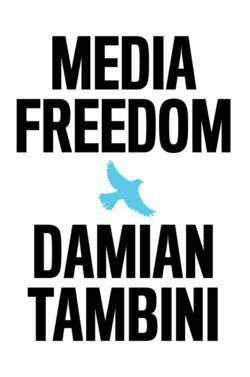Читать книгу Media Freedom - Damian Tambini - Страница 13
Freedom from the State or from Private Actors?
ОглавлениеIs media freedom protection from interference only by the state, or also from interference by private actors? Again, there is a distinction between the US approach and others around the world. US doctrine offers less protection from private interference with speech rights and stronger protection against state restrictions, whereas the European doctrines of positive interventions to protect freedoms, and the indirect horizontal effect of safeguards against interference with free speech by private actors, permit of more potential to protect people and media against private acts which have the effect of censoring speech, but may give states or courts stronger powers to decide what the limits on some people’s actions should be to protect the interests of others. The First Amendment to the US Constitution provides protection primarily against restriction of speech by law – which has been taken to mean the state more widely.68 Historically, because of First Amendment concern about any encroachment of state agencies in the speech field, public broadcasting has not benefitted from significant state-granted privileges or funding (aside from spectrum pricing).
Since the emergence of significant intermediaries with power to decide which messages are widely received, such as search and social media platforms in the first decade of the twenty-first century, states have been keen to delegate to those platforms various regulatory or censorship functions, with the result that there has been an expansion of private enforcement of censorship.69 From the point of view of a negative rights approach where state restraint on communication is the chief concern, this enables states to achieve policy objectives – such as child protection or the removal of terrorist content – because private enforcers are not in general constrained by free speech rights.
From the point of view of the individual autonomy and expressive rights of the speaker, however, it may be irrelevant whether a censorship function is carried out by a private or a state actor. What matters is whether their voice is heard. But the development in 2021 of proposals for new regulatory agencies to ensure that private actors censor speech more effectively raises fundamental questions of where the boundary between state and self-regulation is deemed to lie.
The EU has been actively developing and disseminating standards for ‘independent regulatory agencies’70 in the media sector, which are intended to be politically neutral, to introduce procedural and transparency safeguards to ensure that ‘state’ regulation of communication does not operate against the public interest and is not susceptible to capture. In the US, in contrast, the Federal Communications Commission is explicitly a government regulator and its decisions are more politicized. In such a system, the idea of a state-backed but independent, positive regulation of media speech is a non-starter.
